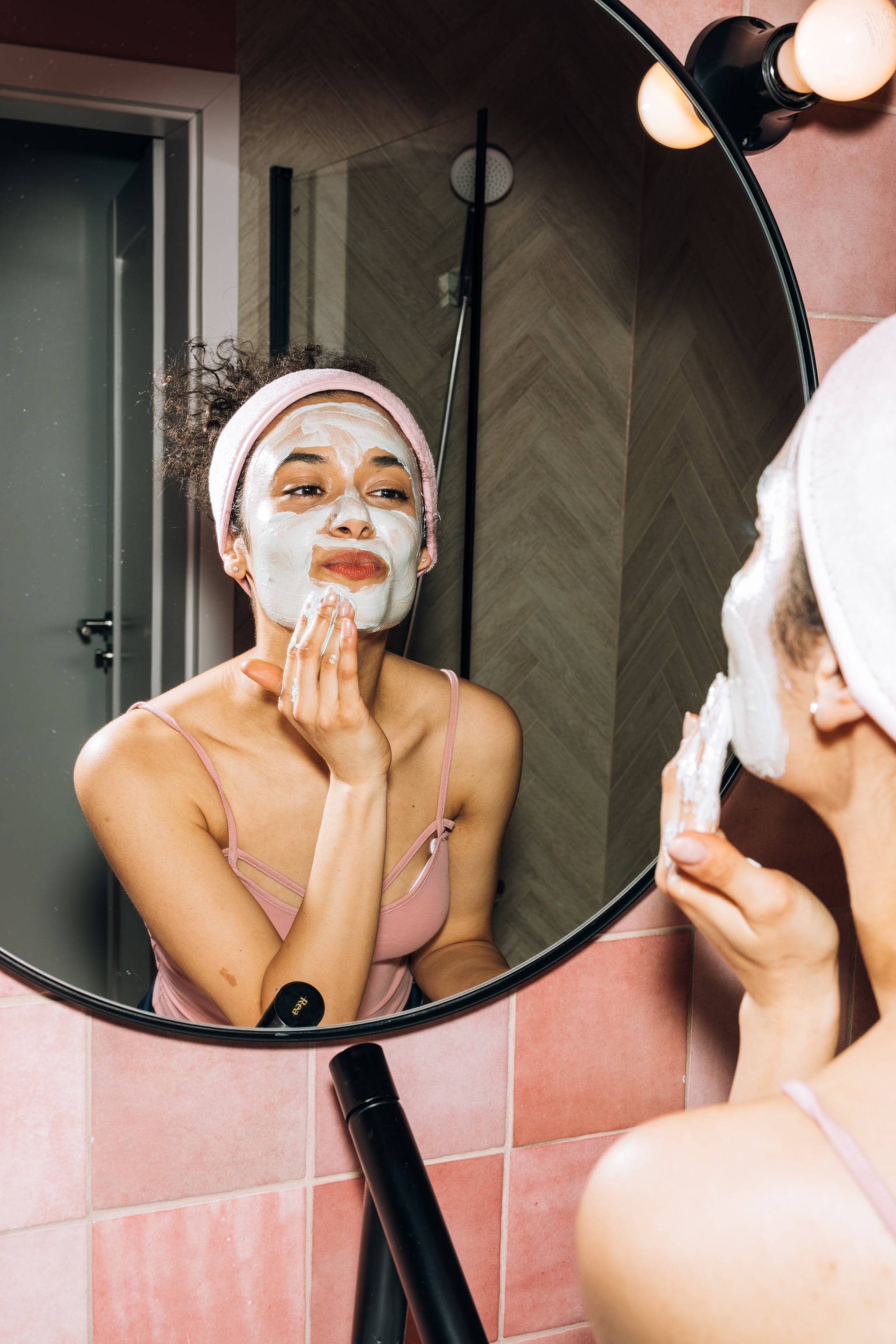Anxiety at an all time high, daily face mask-wearing, and the rise of amateur skin-care gurus on TikTok: these were the main ingredients for my latest skin disaster experiment.
It started innocently enough. Just before Christmas, I bought a cheap and highly reviewed charcoal mask from my favorite brand — The Ordinary Salicylic Acid 2% Masque ($12) — to try and fix the mess that wearing a face mask every day for months had brought upon my face. My boyfriend was coming to stay with me for a few months, and I wanted to look nice. Plus, I’ve always loved purifying masks; I’ve had combination skin my whole life, and a good clay mud one can do wonders when it comes to unclogging pores and making me feel fresh. Unfortunately, that’s not what happened this time.
The instructions said, in no uncertain terms, leave on for no more than 10 minutes — but I am stubborn and so are my pores, so I thought, what’s the worst that could happen if I leave it on for a couple more minutes? Turns out, a lot. A couple more minutes turned into 10, and I spent the next week sporting the facial equivalent of the Red Wedding from Game of Thrones.
It pains me to say, that’s not where this story ends.
In search of something to soothe my angry skin, as it got increasingly rougher to the touch and more red with every passing day, I turned where every quarantined millennial would: beauty TikTok and Instagram Reels.
A flock of people told me to try Avène Tolérance Extrême Emulsion ($38), a lightweight and breathable formula meant to lessen irritation and let the skin barrier rebuild itself, so I did. Although, overeager as always and thinking it would do me double good, I bought the richer version only intended for extra dry skin, not combination, and woke up one morning to bumps on my face.
The truth is, I didn’t have the patience to properly deal with any of it, nor the energy to put up with yet another small thing going wrong against the background of a million more important problems facing the world, so I just . . . spiraled.
I added a glycolic acid into the mix and upped my retinol usage from twice a week to every night, hoping it would stimulate enough cell turnover to give my face a fresh start. I stopped using the Avène rich moisturizer and tried a face oil I had laying around in the house instead – which would have been fine, except some oils are great for combination skin and some are fatal, and I didn’t bother to do much research. I went back to The Ordinary’s salicylic acid treatment, and throughout one entire, disastrous week, applied it daily. This time, I always made sure to wash it off after five minutes, but by then, it didn’t matter. My skin was pleading with me to stop, and I was too far gone in the rabbit hole to listen.
I kept on undeterred, certain that the more I exfoliated the better I would feel — that the more control I could exert on my skin in lieu of having any semblance of it in my day to day life, the less helpless I would feel about having been stripped of any certainty I might have had in March 2020. I was taking all the anger and anxiety caused by the past year out on my skin. And I had to find a way to put a stop to it, or I would end up causing my skin some serious and lasting damage.
It took over a month and copious amounts of patience and gentle compassion for myself, but I did manage to get both my anxiety and my skin irritation under control.
First, I went back to therapy. I confessed to feeling impossibly powerless and plagued by negative, toxic thoughts of the “this is never going to end and we’ll live in quarantine hell forever” kind. I got my boyfriend to keep an eye on my beauty cabinet and stop me from using anything with potent active ingredients (or anything with the word acid on it) until further notice. I found a non-comedogenic oil (The Ordinary 100% Organic Cold-Pressed Rose Hip Seed Oil, $10) that leaves my skin feeling plump and healthy, and it hasn’t left my side since.
I scrolled past enough posts on Instagram, and clicked “I am not interested in this” enough times to teach the algorithm to show me less amateur skin-care content. Not because I wouldn’t want to see it, nor because what it shows doesn’t have value, but for the very opposite reason: I know now that the more vulnerable you are feeling, the easier it is to buy into anything if you see it enough. I now know how dangerous that can be.
Throughout the past three months, my skin-care journey has taught me the importance of starting on a new routine or any kind of improvement project from a place of stability and kindness, not one of agitation and mild despair. All the acids in the world couldn’t give us back the peace of mind we’ve been robbed of in 2020, but a gentle and loving approach to skin care and to our mental health alike could help us build on the lessons we’ve learned — and emerge from this with calmer brains and glowing skin.
Source: Read Full Article
